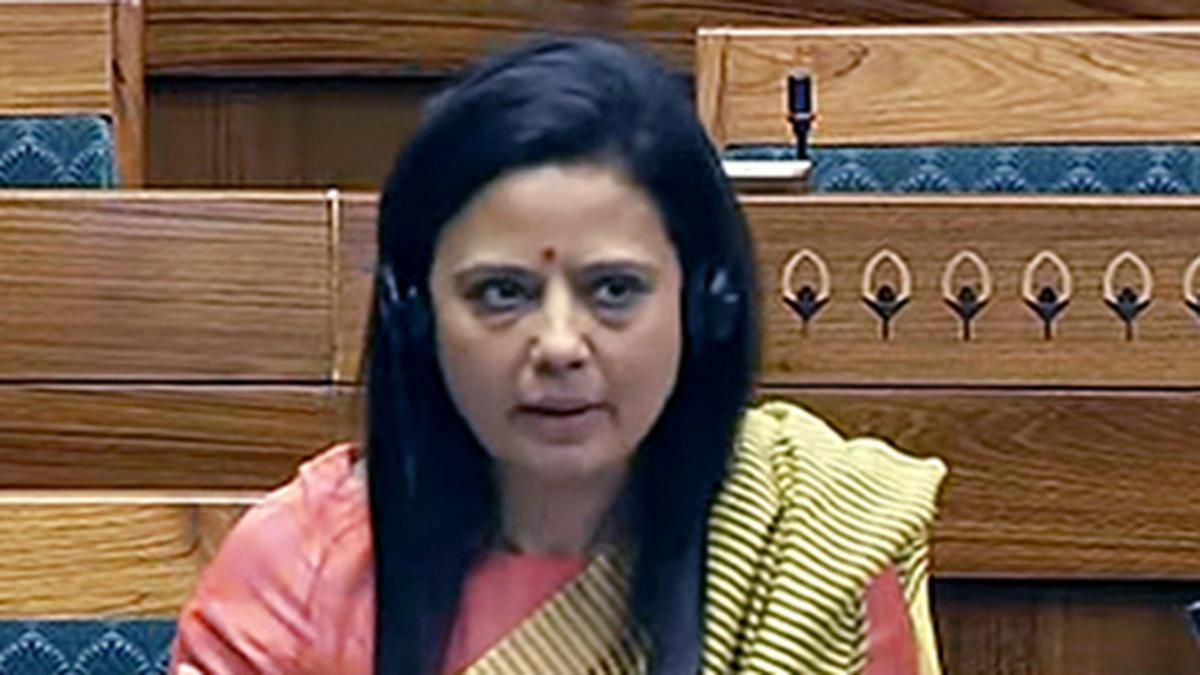
Trinamool assigns key organisational post to Mohua Moitra
The Hindu
The Trinamool Congress appoints Mahua Moitra as Krishnanagar district president. She replaces Kallol Khan. TMC leadership backs Moitra, claiming Ethics Committee's decision to expel her from Lok Sabha is to stifle her voice.
Trinamool Congress on Monday appointed Mahua Moitra as the party’s president of Krishnnagar organisation district. Ms. Moitra has been given the task of strengthening the party at a time when she was facing recommendations from the Ethics Committee for expulsion from Lok Sabha in a cash-for-query row.
She has replaced Kallol Khan as the district president of Krishnanagar in the State’s Nadia district. The MP took to social media and thanked party chairperson Mamata Banerjee. “Thank you @MamataOfficial and @AITCofficial for appointing me District President of Krishnanagar (Nadia North). Will always work with the party for the people of Krishnanagar,” she said on X.
EDITORIAL | Over the top: On Mahua Moitra and panel’s disqualification recommendation
Ms. Moitra won the Krishnanagar Lok Sabha seat in 2019 with a margin of over 60,000 votes and the development was an indication that the party may field her again from the same seat in the upcoming Lok Sabha polls.
The Trinamool Congress leadership on November 9 put its weight behind Ms. Moitra by raising questions on the decision of the Parliament Ethics Committee, claiming that it was a move to stifle the MP’s voice in the House.
The party’s general secretary Abhishek Banerjee commented that Ms. Moitra was “competent enough to fight her own battle”. The party leadership has said that the decision of the Ethics Committee against the Krishnanagar MP was to stifle her voice in the Parliament.
After the Ethics Committee submitted its report, Ms. Moitra wrote to Lok Sabha Speaker Om Birla to question how the Adani Group-owned NDTV had acquired access to the draft report of the Committee.













